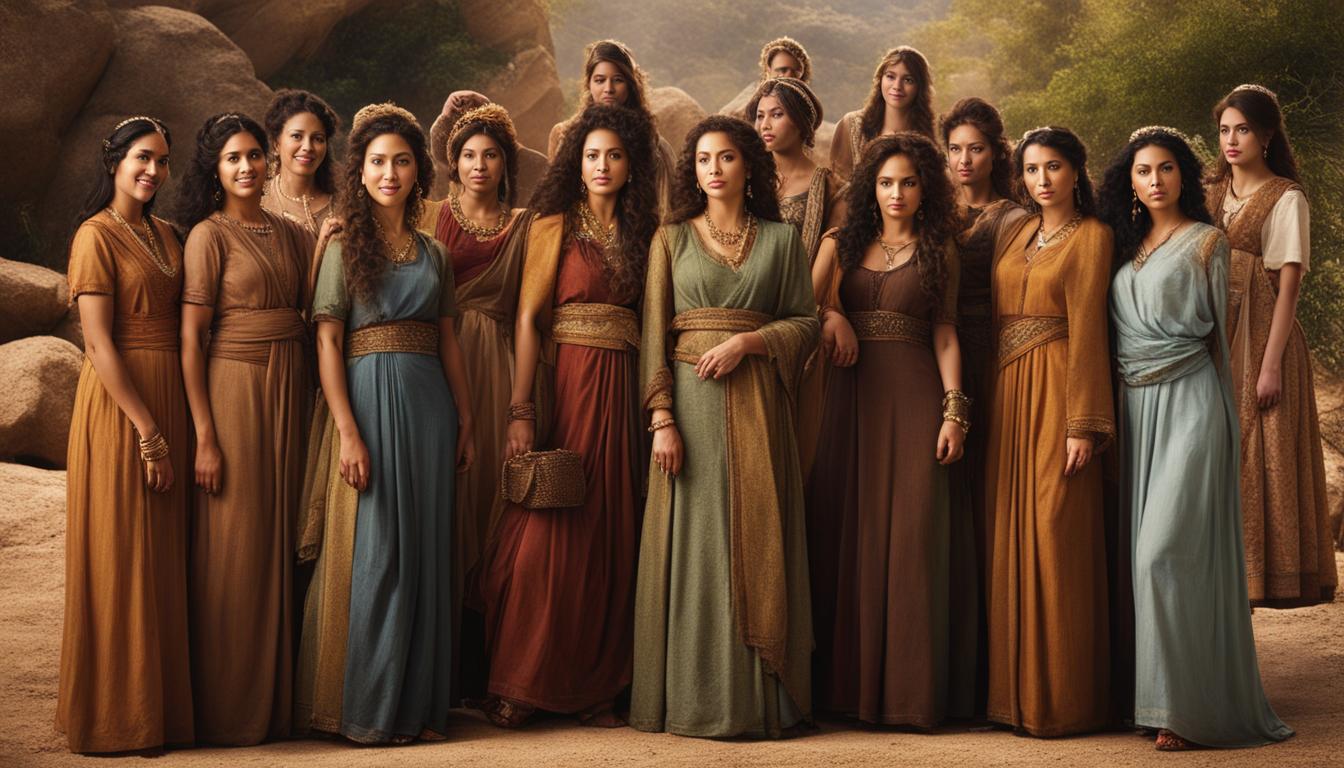How Many Wives Did Dean Martin Have - A Look At Numbers
The life of a well-known public person often brings with it a fair bit of public curiosity, particularly when it comes to personal connections. People often wonder about the various aspects of someone's personal story, including the number of significant relationships they might have had. It's a common human tendency, you know, to try and get a sense of the full picture of someone's life, especially those who were, like, very much in the public eye.
When we think about someone as famous as Dean Martin, it's not unusual for questions about his personal life to come up. People are naturally curious about the details that shaped his existence, the personal bonds he formed, and, in some respects, the count of these important connections. This kind of inquiry, in a way, often centers on trying to put a number to things that are, frankly, quite personal and, perhaps, even private.
This discussion will explore the idea behind asking "how many wives did Dean Martin have," focusing on what the word "many" actually means in this kind of context. We'll look at how we use words to describe counts of things, especially when those counts might be large or, you know, just not a small number. It's about understanding the language we use to talk about numbers, rather than, say, trying to list every single detail of someone's personal life.
Table of Contents
- A Life Marked by Public Interest
- Understanding "Many" in Life's Counts
- How Many Wives Did Dean Martin Have - What Does "Many" Even Mean?
- When Does a Number Become "Many"?
- Counting Life's Significant Relationships
- How Many Wives Did Dean Martin Have - Exploring Indefinite Numbers
- Can We Count "Many" Wives Did Dean Martin Have?
- The Idea of "Many" and Personal Connections
- How "Many" Applies to Countable Things, Like Relationships
- A Closer Look at "Many" in Everyday Language
- The Nuance of "Many" When Discussing Personal Lives
A Life Marked by Public Interest
A public figure's story often involves a great deal of public awareness, with many aspects of their existence being openly discussed. This includes, you know, their professional achievements, the creative works they produced, and even, in a way, the various personal connections they made throughout their time in the spotlight. People tend to follow the lives of those who entertain them, and this often leads to a desire to understand the full scope of their experiences, which can involve, perhaps, a count of their personal bonds. Basically, people are just curious.
When we consider someone who lived a life with, apparently, many public moments and shared experiences, the idea of counting different parts of their journey becomes a natural part of how people remember them. This might mean counting the number of films they made, the songs they sang, or, indeed, the significant personal relationships they had. It's about how we categorize and, in some respects, try to quantify the elements of a life that was lived very much in front of an audience.
Personal Details - A Public Figure's Life
For someone like Dean Martin, whose life was, you know, pretty much an open book in many ways, people often look for details that help them piece together his story. While we're not going into specific private details here, we can talk about the general types of information people often seek when they ask about a public figure's personal life. This often involves looking at how many different roles they played, or how many times their name appeared in headlines, or, you know, just how many different kinds of experiences they had.
| Aspect of Life | Description |
|---|---|
| Public Appearances | Often involved in a large number of performances and media events. |
| Professional Endeavors | Engaged in a wide array of artistic and entertainment projects. |
| Personal Connections | Formed various relationships throughout a public and private life. |
| Life's Chapters | Experienced many different phases and periods over time. |
Understanding "Many" in Life's Counts
When people ask "how many wives did Dean Martin have," they are, in fact, asking for a count. The word "many" itself suggests a quantity that is, you know, more than just a few, but not necessarily an exact, precise number. It points to a number that is large, but not always definite. It's like saying there were a lot of something, without having to say, for example, exactly fifty-three. This is how we often use "many" in everyday talk, to describe a substantial amount of things that can be counted.
The idea of "many" is used to show that we are talking about a large group of people or things. For example, you might say, "I don't think many people would argue with that," which means a large portion of people would likely agree. Or, "Not many films are made in Finland," which tells us that the number of films produced there is, you know, on the lower side, compared to other places. So, "many" is a way to describe a significant, though not always specified, amount of items or individuals that you can actually count.
How Many Wives Did Dean Martin Have - What Does "Many" Even Mean?
The word "many" refers to a number that is, you know, quite large, but it doesn't give you a precise figure. It's used when you can count something, like people, or houses, or, in this case, wives. It's typically used with nouns that are plural and can be counted, such as "properties," "days," or "students." For example, if you have "many miles" on a car, it means you've driven it, like, a great deal, over long distances, very often. It's about frequency or a large amount that can be tallied up.
When someone asks, "how many people will be at the party?" they are looking for a count, and the answer might involve "many" if the number is expected to be high. We use "many" for things we can actually tally up, unlike "much," which we use for things we can't count, like "much water" or "much time." So, if you're wondering "how many wives did Dean Martin have," you're asking about something that, in principle, can be counted, even if the exact number isn't immediately known or stated.
When Does a Number Become "Many"?
The point at which a number becomes "many" is, you know, often a bit subjective. It's about what seems like a large quantity to a person in a particular situation. For instance, a "couple of" or "a few" is a small number, but "several" or "a handful of" starts to suggest a slightly larger, though still limited, amount. "Many" takes it further, implying a significant or considerable quantity, perhaps, that goes beyond what one might consider common or typical. It's about a large, indefinite group.
The term "many" suggests the presence of a large number of units, or a succession of them. It's a popular and common word for this idea of a big group. It's used to show that there is a significant amount of something, indicating a plural or multiple existence. So, when discussing "how many wives did Dean Martin have," the use of "many" in the question itself points to the idea of a potentially large number of marital connections, without giving a specific count. It's about the general sense of a large quantity.
Counting Life's Significant Relationships
The question of "how many wives did Dean Martin have" is a query about a count of significant personal bonds. These are, you know, relationships that are usually defined and, in a way, can be counted one by one. The word "many" applies here because wives are countable nouns. You can have one wife, two wives, and so on. The question is whether the actual number falls into what we would describe as "many." This is, you know, a very common way to frame questions about quantities of things that can be itemized.
In common talk, "many" is often used in questions and in sentences that are negative. For example, "Do you have many things to do today?" or "We don't have many options." This usage pattern highlights that "many" is often employed when discussing whether a large number is present or absent. So, when someone asks "how many wives did Dean Martin have," they are using "many" in a typical question format to inquire about a potentially large count of his marital relationships.
How Many Wives Did Dean Martin Have - Exploring Indefinite Numbers
The meaning of "many" is that it consists of or amounts to a large but indefinite number. It's a word used to describe a quantity that is big, but not necessarily fixed. So, if you're talking about "how many wives did Dean Martin have," you're looking for a number that could be described as "many," meaning a significant, perhaps, large, but not precisely stated, quantity. It's like saying there were a lot of something without giving the exact tally. This is how the word "many" functions in language, to convey a sense of abundance without being specific.
The term "many" is used to indicate a large number of items that one can count. It's typically paired with plural, countable nouns. For example, you might have "many properties," "many days," or "many students." In the context of "how many wives did Dean Martin have," wives are countable, and so the use of "many" fits the grammatical rule for describing a large quantity of such items. It's about the general idea of a substantial amount, rather than, you know, a specific figure that you could, say, write down.
Can We Count "Many" Wives Did Dean Martin Have?
Yes, you can absolutely count the number of wives someone had, as they are distinct individuals. The question then becomes whether that count amounts to what we would describe as "many." "Many" itself refers to a large number of persons or things. It's a way to categorize a quantity as being on the higher side. So, in theory, if a person had, you know, a considerable number of wives, one could accurately say they had "many." It's about applying the concept of a large quantity to a countable group.
The word "many" is used only with the plural of countable nouns. Its counterpart for things you can't count is "much." So, you wouldn't say "much wives," but "many wives." This distinction is important for how we use language to describe quantities. When people ask "how many wives did Dean Martin have," they are using the correct word for asking about a count of individuals. It's about understanding that these are separate, distinct relationships that can, in fact, be numbered, and then deciding if that number fits the description of "many."
The Idea of "Many" and Personal Connections
When we talk about "many" personal connections, like "how many wives did Dean Martin have," we're considering relationships that are, you know, significant and distinct. Each wife represents a separate and individual bond. The term "many" here suggests that the total count of these relationships is, perhaps, larger than what might be considered typical or common for an individual. It's about the idea of a substantial collection of these kinds of personal bonds, rather than just a small handful.
The phrase "many" can also describe something that is "being one of a large number" or "belonging to an aggregate or category, considered singly as one of a kind." So, if Dean Martin had "many wives," each one would be an individual member of that larger group of his marital partners. This usage emphasizes that while there's a large total, each unit within that total is still distinct. It's a way to acknowledge the individual nature of each relationship, even when discussing them as part of a larger, perhaps, quite numerous, collection.
How "Many" Applies to Countable Things, Like Relationships
The word "many" is, you know, fundamentally about countable things. You can use it to describe a large number of anything that you can tick off one by one. Relationships, like marriages, are typically countable. You can clearly identify each one as a separate instance. So, when people ask "how many wives did Dean Martin have," they are asking about a quantity of distinct, countable relationships. The word "many" is, in this case, perfectly suited for such a question, as it applies to things that can be tallied up.
Consider the phrase "for many are called, but few are chosen." This example shows "many" referring to a large number of people who are part of a group, even if only a smaller number from that group are selected. It highlights that "many" signifies a large, often indefinite, collection of units. So, when discussing "how many wives did Dean Martin have," the underlying assumption is that wives are individual units that can be counted, and the question seeks to determine if that count falls into the category of "many." It's about the sheer quantity of these personal connections.
A Closer Look at "Many" in Everyday Language
In everyday talk, "many" is a very popular and common word for expressing the idea of a large number. It's straightforward and widely understood. When you hear someone ask "how many wives did Dean Martin have," the word "many" immediately brings to mind the idea of a significant count, perhaps, more than just a couple. It’s a simple way to convey that the number being asked about could be, you know, substantial, without getting into complex numerical details. It's about the general impression of a large quantity.
The word "many" can be replaced by other words that mean a similar thing, like "numerous," "multiple," "several," or "countless." These words all point to the idea of a large quantity. You could also say "some," "all kinds of," or "quite a few," which also indicate a certain amount, though "many" tends to imply a larger collection. So, when someone asks about "how many wives did Dean Martin have," they are looking for a sense of the scale of his marital history, using a word that points to a considerable number of these relationships.
The Nuance of "Many" When Discussing Personal Lives
When "many" is used to describe personal aspects, like "how many wives did Dean Martin have," it adds a certain nuance. It's not just about a raw number, but about the implication of that number within a personal context. A "large, indefinite number" of personal connections can suggest a life that was, perhaps, quite full of different experiences and bonds. It hints at a history that is, you know, rich with various chapters involving significant others, rather than a simple, short list. It's about the breadth of personal experience.
To get "many" of something, you often do something frequently, or often. For example, having "many miles" on a car means you often drive it long distances. While this doesn't directly apply to wives, the concept of "many" still implies a substantial collection. In the context of "how many wives did Dean Martin have," it points to the idea that there were, perhaps, a good number of these relationships over the course of his life, making his personal story, you know, quite varied in this regard.



Detail Author:
- Name : Mrs. Natalia Wiza III
- Username : marlene57
- Email : pkeeling@gmail.com
- Birthdate : 1994-08-08
- Address : 4762 Kautzer Ramp Suite 288 West Jordymouth, MI 14252-0022
- Phone : +1-848-243-5033
- Company : Labadie, Wintheiser and Frami
- Job : Producers and Director
- Bio : Error adipisci et a eaque. Totam qui ea earum quis exercitationem quo. Omnis consequatur architecto et optio aut molestiae aut. Dolor vel est quas consequatur aut id aliquid.
Socials
twitter:
- url : https://twitter.com/hermanc
- username : hermanc
- bio : Et quaerat nemo perspiciatis distinctio qui blanditiis nulla. Quos nesciunt ea autem aliquid molestiae qui nisi. Minima est ut asperiores id ut nobis veniam.
- followers : 6811
- following : 2951
facebook:
- url : https://facebook.com/herman2003
- username : herman2003
- bio : Voluptatum aliquam illo in mollitia id minus.
- followers : 1213
- following : 2595
linkedin:
- url : https://linkedin.com/in/cherman
- username : cherman
- bio : Consequatur ut sed dolorem ut ex ut.
- followers : 3405
- following : 2869
tiktok:
- url : https://tiktok.com/@herman1988
- username : herman1988
- bio : Ad commodi harum ut adipisci sunt occaecati a.
- followers : 2202
- following : 1499
instagram:
- url : https://instagram.com/chandler4234
- username : chandler4234
- bio : Et sit et veritatis molestiae cum in voluptates. Sit perferendis accusamus qui qui rerum sed.
- followers : 2934
- following : 1700
